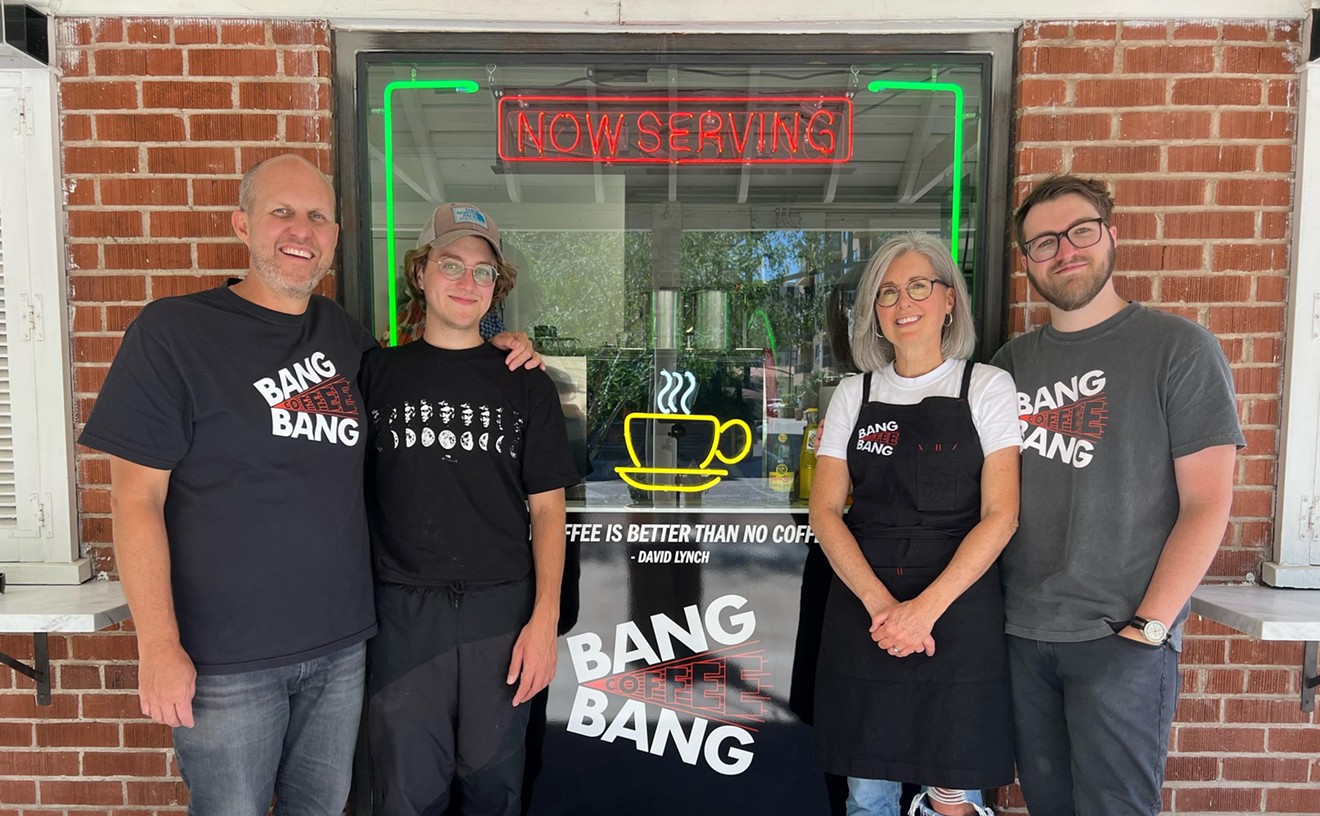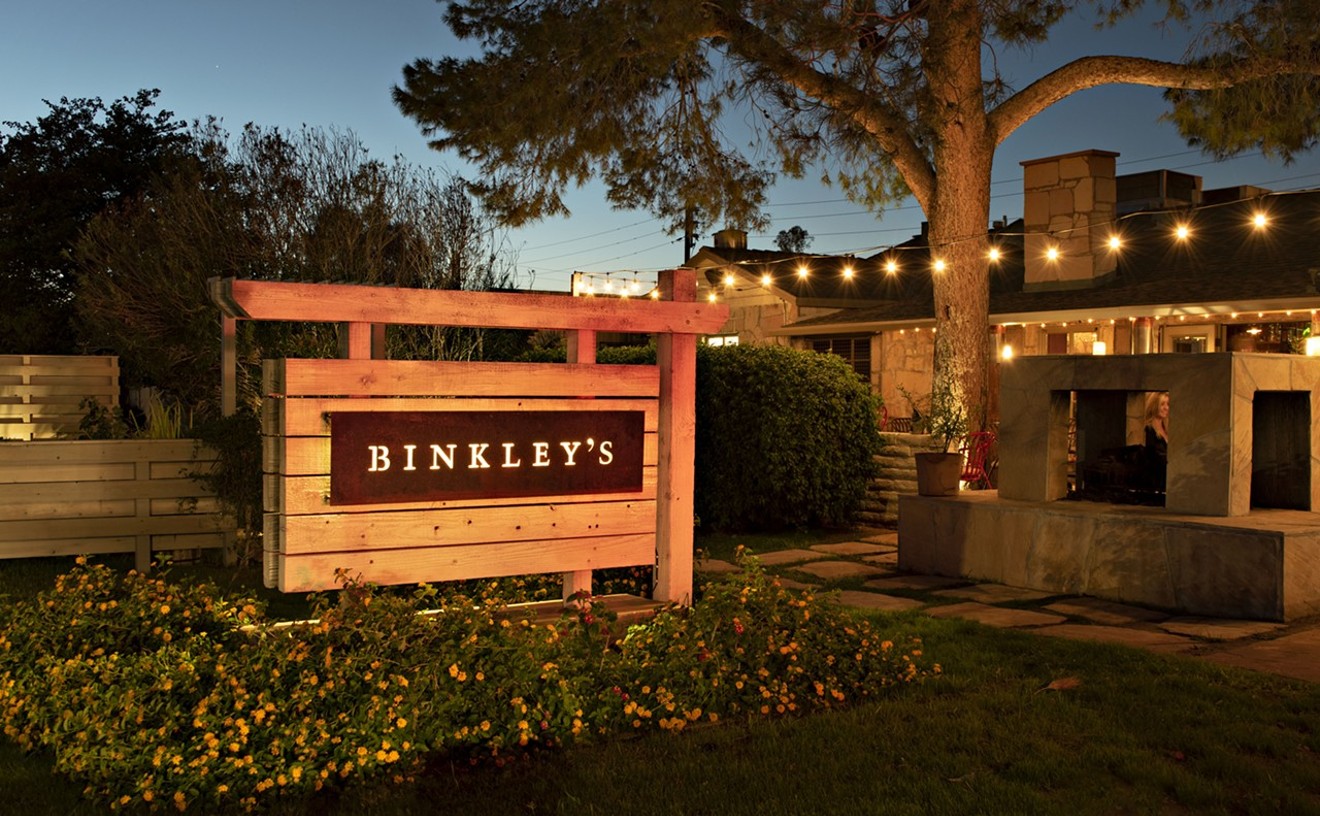He loves film so much, actually, that he's been happily married to it and living in Cave Creek with it for almost 30 years. Since 1974, Walker has run Ron Walker Productions in that town, a full-service production facility of which he is sole proprietor. He's worked as producer, or director, or cinematographer, or editor, or sound mixer, or any number of combinations of the above, on dozens of feature, short, industrial and educational films, as well as TV commercials.
Alas, as in so many otherwise beautiful relationships, there's been a bit of infidelity -- with the electronic image, in Walker's case. When I ask him if he shoots any of his projects on video, he gives an almost furtive cringe.
"Yeah, I like to use video for certain projects, for campaign commercials and industrials and stuff like that," he admits, "'cause it's cheap and it's fast. It's a good way to have some income, and it helps finance bigger projects."
Cheap and fast. It figures.
Walker and I are sitting in Casey Moore's Oyster House and Seafood Restaurant, that comfortable eatery located in a "historic" house -- that is, one built in 1910, a veritable Parthenon by Arizona standards -- not far from Arizona State University, where Walker teaches Live Action Film Production part-time. While we wait for our lunches, he lays out the basic plot of The Ron Walker Story for me.
FADE IN: Chicago, the early '60s. Ron Walker is already an award-winning filmmaker at 13. "My first award," he recalls, "was at the City Science Fair at the Museum of Science and Industry." The project? "It was called How to Make an Animated Film," he says. "It started with a bird spreading its wings in multi-colors, and then it went to black-and-white, then there was a spaceship headed to whatever other planet. I don't think we ever got there, 'cause I ran out of money." But even with this artistic compromise, Walker's fledgling film project was a commercial success: The City Science Fair award was $25.
Walker returned to these interests only via a long detour through a more mundane profession. He studied electrical engineering at DeVry -- "I was never the great student," he grants -- and pursued it for a time as a career. "I worked at it for about two years and realized that if that's the rest of my life, I might as well get the knife out now."
So what brought him back to film? "That goes back to the draft," says Walker. "I knew if I went over there, I'd get off the plane and be dead." He got his chance to avoid the Vietnam-era selective service through a connection his brother had at the Geophysical Sciences Department at the University of Chicago. He got a lab job working on a government project by which submarines could be detected beneath the ocean surface through observation of the frequency of the waves, or the depth or height or speed of the waves, or something like that. Walker's description gets pretty technical, and I'm too embarrassed -- and too wrapped up in a bowl of excellent seafood chowder -- to admit that I don't get it.
In any case, at the lab next door the researchers were looking for a graphic way to present their findings to the project's honchos in Washington, D.C., and Walker helped them develop a process by which the progress of a wave in a tank could be filmed, in a tracking shot. It wasn't glamorous, but he was back in the movie business.
Not long after that, he took his leave not only of science labs but of the City of Big Shoulders. His nostalgia is well-controlled: "I miss the restaurants, and miss the museums," he says. "The rest of it you can have." On that blunt note, our main courses arrive. The chowder was sufficiently hearty that I really don't need the "fishwhich" -- tasty cod in a thin, stiff batter on a bun, with tartar sauce -- that I've ordered, but I bite into it anyhow. While Walker grazes on his imposing lunch salad topped with ham, he tells me how he landed in Arizona. He was, it turns out, one of those incredibly prescient people who bought property in Cave Creek in the early '70s. "That's one of the five or six decisions you make in life that you don't regret," he understates.
Walker still had, at the time, the vague idea of working at Honeywell or some other tech firm here in the Valley, but within three years he had founded Ron Walker Productions. The dozen-plus features on which he's worked have largely been obscure indies, several of which, including the legal comedy-drama Whiplash with Ernest Borgnine and Greasewood Flat with Irene Bedard, are still in postproduction limbo.
Working with independent producers invariably involves working on a tight budget, and even with that as a given, it's often hard for Walker to make his clients understand that he can't work for free. "I tell them how much it's gonna cost, and they say, 'But that's expensive!'" he says wearily. "And I say, 'Well, yeah, what do you do for a living?'"
Walker has had more high-profile success with his smaller-scale works -- his half-hour documentary Ted De Grazia: 1977, or another on the making of Ridley Scott's famous Chanel #5 commercial, or segments of the '70s TV shows That's Incredible and You Asked For It, or commercials for the Phoenix Roadrunners, the Arizona Lottery or St. Luke's Hospital. Again, less glamorous credits, perhaps, but the sort on which many of the craftspeople in the film business build their careers and put their kids through school. And Walker, maybe no less than Spielberg or Scorsese, loves and is devoted to his medium. When I ask him if he thinks digital video will ever replace film, he has his response ready:
"Will watercolor ever replace oil paints?"










